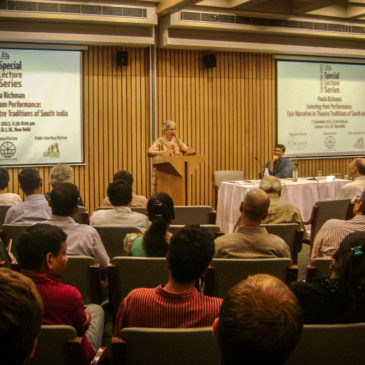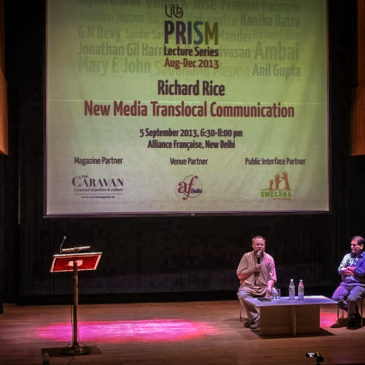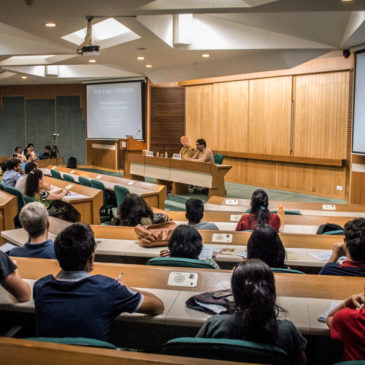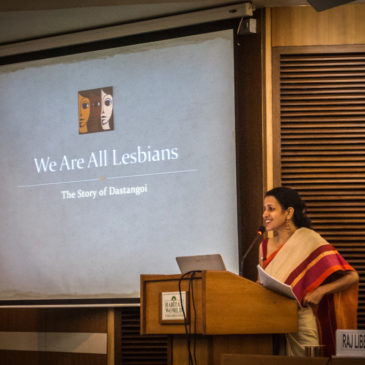Paula Richman: Learning From Performance
Paula Richman discussed the Ramayana stories as represented in the South Indian traditions of Kattaikoothu, Nangiar Koothu, and Yakshagana. Prof Richman’s scintillating presentation was matched by Prof. Rustom Bharucha‘s insightful intervention as Chair. This event offered us a fine illustration of a LILA Lecture programme: the speaker is introduced in terms of her core strengths, the lecture is presented in the context of her work in its continuity, and in relevant terms as a LILA event.





